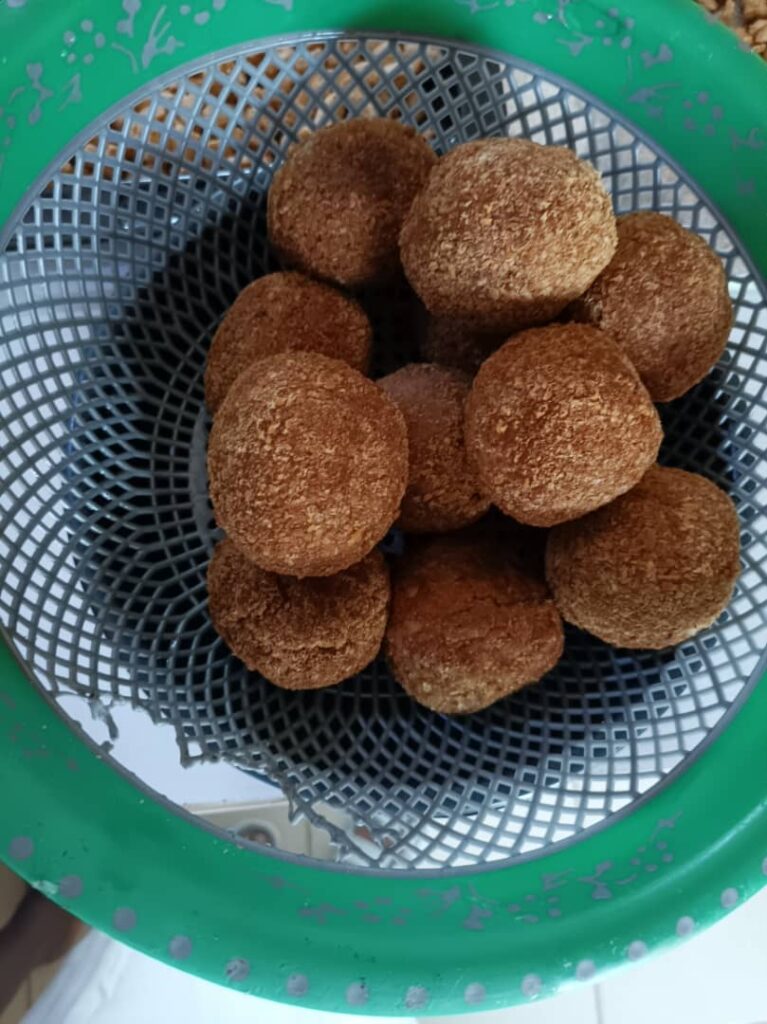
What are street foods?
Street food refers to food and drinks that are prepared, cooked, and sold on the streets or in public places. These foods are often portable and can be eaten while standing or walking.
In Nigeria, examples of these street foods include suya, akara, and various types of fried foods such as chicken, fish, yam or potatoes, etc. They can also include snacks like popcorn, nuts, and fresh fruits.
Street foods are often associated with fast food, but they can also be prepared with fresh, healthy ingredients and served in a way that is convenient for people on the go.
Street foods are also a great way to experience local flavors and culinary traditions while traveling. However, it’s important to be mindful of food safety and hygiene when consuming street foods, especially in areas with limited sanitation and food regulations.
Nigeria, as a country is known for its sumptuous street foods. For one reason or the other, it might seem as though these street foods even taste better than those prepared indoors. (Lol)
In this article, I will be discussing at least seven street foods we have in Nigeria and how they are made. Let’s go!
Some Nigerian Street Foods
Suya
Suya is a popular Nigerian street food that is typically made from skewered and grilled meat that is marinated in a blend of spices and served with onions and spicy pepper sauce. It is a beloved snack food that is enjoyed across Nigeria and has also gained popularity in other parts of West Africa and around the world.
The meat used in suya is traditionally beef, but it can also be made with chicken, goat, or other types of meat. The meat is cut into thin slices and then marinated in a mixture of ground peanuts, ginger, garlic, chili pepper, and other spices. The meat is then skewered and grilled over an open flame until it is charred and cooked through.
Suya is often sold by street vendors who set up makeshift grills on the side of the road. It is typically eaten as a snack or as a meal with a side of vegetables or bread. Suya is also a popular food at outdoor gatherings and parties, where it is often served alongside other Nigerian dishes.
In addition to being a delicious and satisfying snack, suya also has cultural significance in Nigeria. It is believed to have originated with the Hausa people in the northern part of the country, and it is often associated with celebrations and social gatherings.
Many Nigerians also view suya as a symbol of national pride, as it is a uniquely Nigerian food that is beloved by people from all walks of life.
Akara
Akara is a popular street food in Nigeria, which is made from peeled beans, onions, and spices. The ingredients are blended and then fried in hot oil until they turn golden brown. Akara is often served with bread or pap (a kind of cornmeal porridge) and is a popular breakfast food in Nigeria.
Akara is also known as bean cakes or bean fritters and is a delicious and nutritious way to start the day. It is a great source of protein and is a popular vegetarian and vegan option. In Nigeria, akara is sold by street vendors, and it is common to see people stopping by on their way to work to pick up a few for breakfast.
Akara is also a versatile food that can be eaten on its own or used as a sandwich filling. It can be served with a variety of dipping sauces or condiments, including hot sauce, ketchup, or mayonnaise. Some people also add vegetables, such as peppers or onions, to the akara mix to give it extra flavor and texture.
Overall, akara is a delicious and nutritious Nigerian street food that is enjoyed by many people across the country. Its popularity continues to grow, and it is now being enjoyed by people all over the world as well.
Moi Moi
Moi moi is a popular Nigerian street food that is made from ground beans, spices, and other seasonings. It is usually wrapped in banana or plantain leaves and steamed until it is cooked. Moi moi is commonly eaten as a snack or as a side dish with rice, bread, or other Nigerian staples.
To make moi moi, black-eyed beans are soaked overnight, then ground into a smooth paste with onions, peppers, and other spices. The paste is then mixed with oil and water to form a batter, which is poured into small bowls or wrapped in banana or plantain leaves. The wrapped packages are then steamed for several hours until the moi moi is fully cooked and firm.
Puff Puff
Puff puff is a popular Nigerian street food that is made from a simple batter of flour, sugar, yeast, and water. It is a type of fried dough that is usually served as a snack or dessert.
To make puff puff, the ingredients are mixed to form a thick batter. The batter is then allowed to rest for a few hours to allow the yeast to work its magic and make the dough rise. Once the dough has risen, it is scooped into small balls and deep-fried in hot oil until golden brown and crispy.
Puff puff is usually served hot and can be enjoyed on its own or with a variety of dipping sauces. Some popular accompaniments include honey, jam, or a spicy pepper sauce.
This delicious snack can be found all over Nigeria, from street vendors to restaurants, and is enjoyed by people of all ages. It is also a popular treat during festivals and celebrations, where it is often served alongside other traditional dishes.
Boli
Boli is a popular Nigerian street food that is made from roasted plantains (known locally as “dodo”). It is a favorite snack and is commonly sold by street vendors and in open-air markets throughout Nigeria.
To make boli, the plantains are first washed and peeled, then roasted on an open flame until they are charred on the outside and tender on the inside. The plantains are typically seasoned with a mixture of salt and spices and sometimes served with a spicy pepper sauce or groundnut (peanut) sauce.
Boli can be enjoyed on its own as a snack, or as a side dish with other Nigerian foods like rice, beans, or stews. It is particularly popular in the southern part of Nigeria, where it is often eaten with grilled fish or chicken.
Corn
Corn, as street food in Nigeria, can either be boiled or roasted to suit each individual’s preference. Corn is a popular street food in Nigeria, especially during the rainy season when the crop is in season. Corn is typically boiled or roasted and served with a variety of toppings, depending on the vendor and the customer’s preference.
Agege Bread
Agege bread is a popular street food in Nigeria, particularly in the Lagos area. It is named after Agege, a suburb of Lagos where the bread is said to have originated.
Agege bread is known for its distinct taste and texture. It is white bread that is soft, slightly sweet, and slightly chewy. It is typically sold in long, rectangular loaves that are sliced to order. A lot of people eat together with akara or moi moi.
Agege bread is a staple in the Nigerian diet and can be found in many street food markets throughout the country. It is a popular choice for breakfast, lunch, and snack time.
Conclusion
In conclusion, Nigerian street food is a true representation of Nigeria’s rich culture and diversity. With its unique flavors and affordability, it’s no wonder that Nigerian street food is gaining popularity all around the world.
Nigerian street food is also very affordable and accessible to people from all walks of life. Many vendors sell their food on the streets, making it easy to grab a quick and delicious meal on the go.
Even though these foods are generally called “Street foods,” they can be prepared by each individual especially when you suddenly have a craving to do so. At Twim Institute, we train students on both local and international dishes, drinks, pastries, etc as well as how to become an entrepreneur. Did you know people earn a living from these street foods and are cashing out big time? Once you are good at what you do, you are good, abeg! No cap!
For more inquiries on tantalizing packages such as this, you can send a message to +2349033279205.




